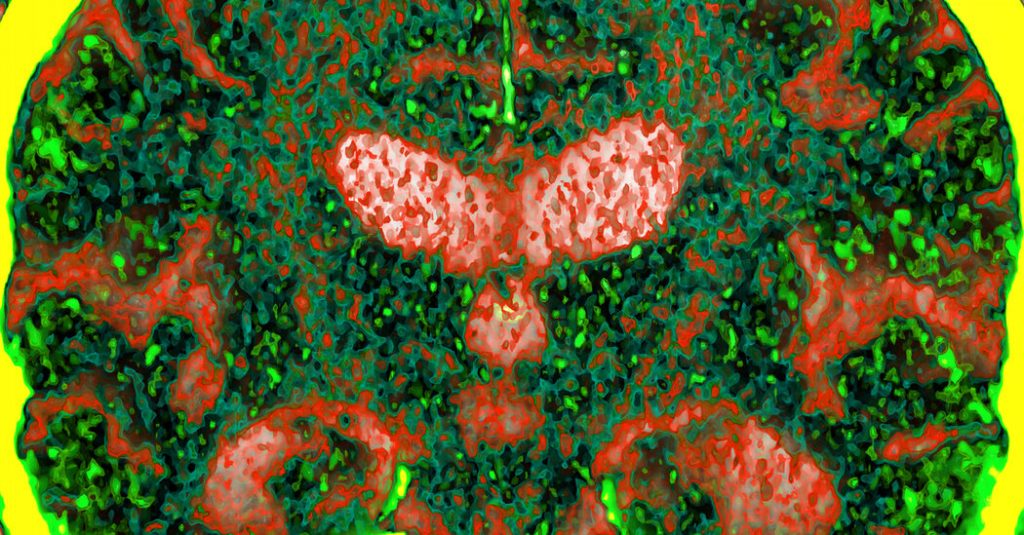Scientists are proposing a new way of understanding Alzheimer’s genetics that could mean up to a fifth of patients would be considered to have a genetically caused form of the disease. The classification would involve a gene variant called APOE4, which scientists have long known increases the risk of developing Alzheimer’s. The study analyzed data from over 500 people with two copies of APOE4, finding that almost all of them developed the biological pathology of Alzheimer’s relatively young, with many starting to show symptoms of cognitive decline by age 65. These individuals, known as APOE4 homozygotes, make up an estimated 15 to 20 percent of people with Alzheimer’s dementia.
As a result of the new classification, the two-copy condition would be considered genetically determined Alzheimer’s, rather than simply a risk factor. This shift could have significant implications for drug development efforts beyond targeting amyloid, which has been a major focus in the field. Patients with two copies of APOE4 face higher safety risks from anti-amyloid drugs, and classifying them as having a distinct genetic form of Alzheimer’s could lead to the development of safe and effective treatments for this population. Some researchers are exploring gene editing and gene therapy approaches to address the APOE4 variant and prevent cognitive decline in people without symptoms.
The study had some limitations, including a lack of diversity in the patient population, most of whom had European ancestry. While the risk of Alzheimer’s is greatly increased in other ethnicities with two copies of APOE4, the levels of risk vary across different genetic ancestries. Under the current understanding of Alzheimer’s genetics, less than 2 percent of cases are considered genetically caused, with some patients inheriting mutations in specific genes or having Down syndrome. APOE4 is believed to interfere with clearing amyloid buildup, while genetic alterations in other cases fuel the buildup of amyloid.
The proposed reclassification could prompt questions about whether people should get tested for the APOE4 variant. Dr. Juan Fortea, an author of the study, mentioned that having one copy of APOE4 would continue to be considered a risk factor rather than enough to cause Alzheimer’s. While having two copies of APOE4 significantly increases the risk of developing Alzheimer’s, Dr. Greicius advised against determining one’s APOE status until there are treatments available for those with two copies of the variant. Finding ways to help these patients is crucial, as they often have a family history of Alzheimer’s and are in desperate need of therapies.


